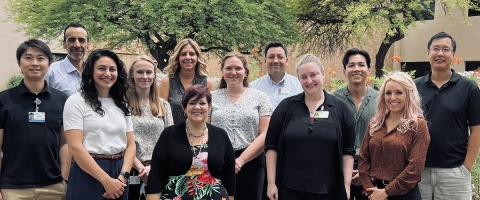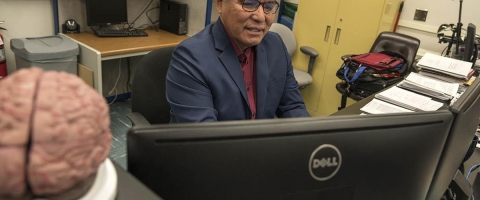The Department of Psychiatry leads efforts to comprehensively prevent and treat psychiatric disorders, conduct cutting-edge research, and prepare future clinicians through rigorous, experiential education. Our commitment to social justice and anti-racism focuses our dedication to serving Southern Arizona’s diverse patient populations.
Events
Behavioral Sleep Medicine Seminar: The Mouth After Midnight
Thursday, April 18, 2024 - 9:00am
News
UArizona Health Sciences features Saira Kalia, MD and Jacque Esque, MD, about the Az Pediatric Psychiatry Access Line.
Given that two-thirds of patients treated for a major depressive episode will fail to achieve remission of symptoms after 2 or more treatment trials of first-line antidepressants, the probability of remission will further decrease with subsequent medication trials. Assistant Professor Rohit Madan shares his research on this subject.










